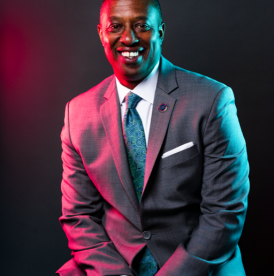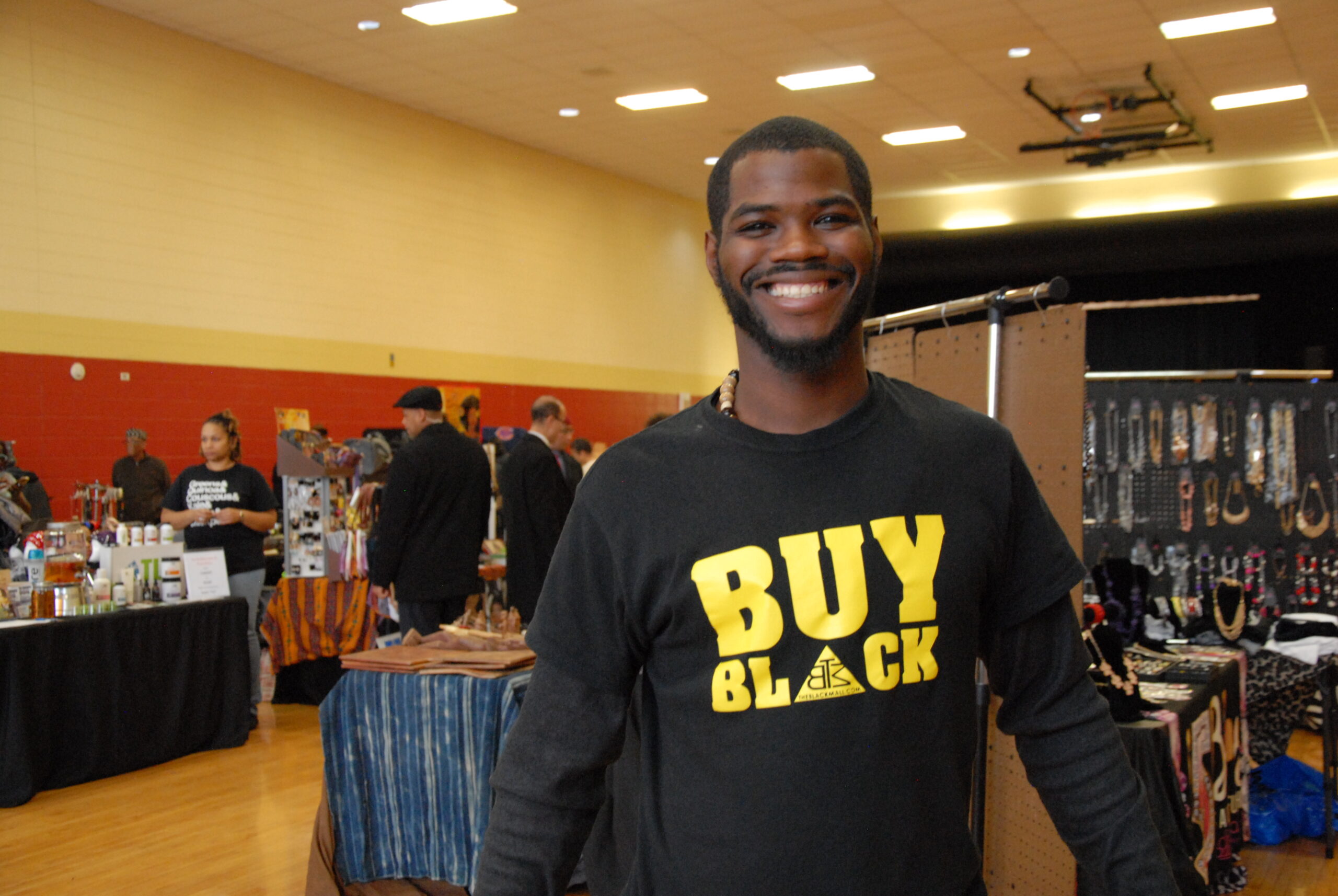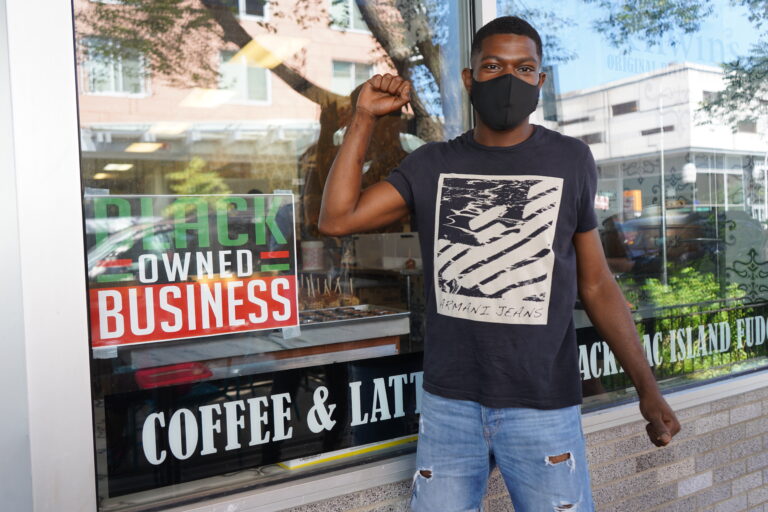The U.S. Black Chamber of Commerce is optimistic about the forecast for Black businesses in 2021 after a dismal 2020 that saw nearly half of Black businesses closed due to the Covid-19 pandemic, according to a report by the New York Fed.
“What we know is that since 1950, we have not seen any change in the wealth gap between White and Black families around this country,” said Ron Busby, president and CEO of U.S. Black Chambers, Inc. (USBC) at the Chamber’s Virtual Inauguration Celebration held recently. “America is now more concerned and focused on issues of racial justice than ever before and it is imperative that we meet the opportunity prepared,” he said.
“As we talked to our businesses across the country there were six key concerns that they all shared. The first one was the locations of where we have businesses. Sixty five percent of all Black people live in 16 States and many of those communities in which they own and operate our businesses are considered economically disadvantaged neighborhoods,” explained Mr. Busby. The U.S. Black Chambers advocates and works with Black businesses nationwide.

“Covid-19 taught us that we need to be concerned about bringing on new customers and opportunities through E-commerce. The U.S. Black Chamber was right there in front of that conversation as we made E-commerce opportunities available for our members.”
Mr. Busby reported that the other five key concerns for businesses were the lack of networks and relationships, lack of mentorship, lack of information, especially about the government,s Payroll Protection Plan loans and grants, access to capital, and lastly lack of expert advice.
“We’re providing the entrepreneurial training programs that will give us the knowledge that we need. We’ve discussed the role of corporate America and as the USBC continues to look forward, we also have to look at the federal government’s role as we know the federal government is the largest contractor in this country,” added Mr. Busby.
“As we talk to our members across the country the one thing that we’ve all heard and that is the U.S. Black Chamber needs to be intentional. We can no longer allow other folk to determine or paint with a broad brush our concerns.”
Being intentional means using exact language when discussing Black businesses. “We must not talk about diversity programs or minority programs as much as we talk about Black-owned business concerns because we know and we’ve seen that when we talk about diversity programs other ethnic groups including White women have prospered the most,” Mr. Busby pointed out.
According to the most recent available Census data, there are more than two million Black-owned businesses in America. Of this number, 124,000 are defined as “employer firms,” which means that they have employees in addition to the proprietor(s). The rest do not have employees.

Blackbusiness.com reported that those employer firms employ more than 920,000 people with a total annual payroll of $23.9 billion. They also reported that global tech consulting firm World Wide Technology is the largest Black-owned business, posting revenues of more than $12 billion in 2016. It was founded by David Steward in 1990. He’s one of just a few Black American billionaires.
Farad Ali, president and CEO of Asociar, a technology company headquartered in Dallas, co-chairs the USBC’s President’s Circle that mentor’s Black businesses that make at least $10 million.
“We’re going to focus on scaling our companies. We want to provide growth to larger firms through acquisitions and joint ventures. In addition to concentrated focus on growing our smaller businesses through subcontracting,” he told the virtual audience at the inaugural celebration held Jan. 20.
Antwanye Ford is the other co-chair of the President’s Circle. “With our focus also is really a commitment to employment. We recognize that job growth helps employment growth. We want to make sure that our firms and corporations, network well together,” he told the audience.

“We know that businesses grow because they have the opportunity to access capital, they get access to contracts, and they have access to connectors. We want to be that connector for the community, in the local community and national community to make sure we can build economic development,” said Mr. Ford.
The co-chairs see the U.S. Black Chambers commitment to the President’s Circle as a pathway forward to the advancement of Black businesses of all sizes. By helping larger businesses, this group can help smaller businesses with mentorship, access to capital, contracts, networking and information on opportunities.
According to Blackbusiness.com New York State has the most Black-owned businesses at 204,093 but this only accounts for 10.6 percent of the businesses in the state. Second is the state of Georgia, third is Florida, and fourth is Texas with the most Black-owned businesses but not necessarily the highest ratios.
That site reported Black-owned businesses accounted for about 28 percent of all businesses in Washington, D.C., the highest ratio in the nation. Second was a tie between Georgia, where 20 percent of businesses are Black-owned, along with Maryland. Next is Illinois with about 19 percent.
Black businesses are rebounding from 2020 where nearly 442,000 Black firms closed, according to the New York Fed. According to their report, “The Covid-19 pandemic has exposed acute and deep-rooted connections between physical and economic health. Many of the same places hit hardest by the pandemic are reeling concurrently from the health crisis, business closures, and job losses. These communities are disproportionately communities of color.”
“Nationally representative data on small businesses indicate that the number of active business owners fell by 22 percent from February to April 2020—the largest drop on record. While the overall decline is noteworthy, differences among closure rates across racial and ethnic groups are even more striking. Black businesses experienced the most acute decline, with a 41 percent drop. Latinx business owners fell by 32 percent and Asian business owners dropped by 26 percent. In contrast, the number of White business owners fell by 17 percent,” the report continued.
“For those that did remain open, 47 percent of them say that during the next six months many of them will close as well,” explained Mr. Busby. “If they don’t get the additional support and resources that they need and for those of us that had jobs, we saw the increase of unemployment skyrocketed to 11 percent for Black people versus six percent of our White peers. Just in the month of December, we heard that we lost over a hundred and fifty thousand jobs,” he said.
In the midst of such economic challenges, what is the prognosis for Black businesses and workers? Is there a light at the end of this tunnel? Can the new administration of President Joseph R. Biden implement new policies or strengthen existing policies that will help Black businesses? What role can and should it play?
“This administration can help Black businesses recover,” economist Dr. Julianne Malveaux told The Final Call. “I think that the Small Business Administration and the Minority Business Development Agency should be beefed up with funds to help these businesses recover. But this is a huge hit. What we saw in the years of the previous president and I don’t call the name of devils, with the previous president we saw a shrinking of the Black business footprint,” said Dr. Malveaux, president emerita of Bennett College, an HBCU.
“This also meant a shrinking in the wealth gap. In other words, the wealth gap is wider because of a combination of 45’s indifference and coronavirus,” she said referring to former President Donald Trump. “Few have really stepped in to say ‘let’s fix this.’ So, unless there is a targeted response to what happened to Black business, I see a downward spiral,” argued Dr. Malveaux.
The hope she has is that there will be a targeted response from the Biden administration. “I think that there are many people in the Biden team who are willing to look at what has happened and see what they can do about it. I think that’s going to be the big difference, what has happened and what can we do about it.”
Adam Harrington is excited about the prospects. He has a small utility contracting business in Maryland that shut down in March 2020. He recently got the call to start back to work.
“I’m hoping and praying that this will be a better year,” he told The Final Call. “Work gives me a sense of purpose. As we saw across the country people were suffering. I realized I was also suffering emotionally and mentally. We’ve seen suicide on the rise. We saw depression and anxiety on the rise too. At first, I didn’t think that was possible with me, but I saw that creeping in,” said Mr. Harrington.
“I’m so glad to be going back to work. My faith in God has kept me going and will get me through.”













